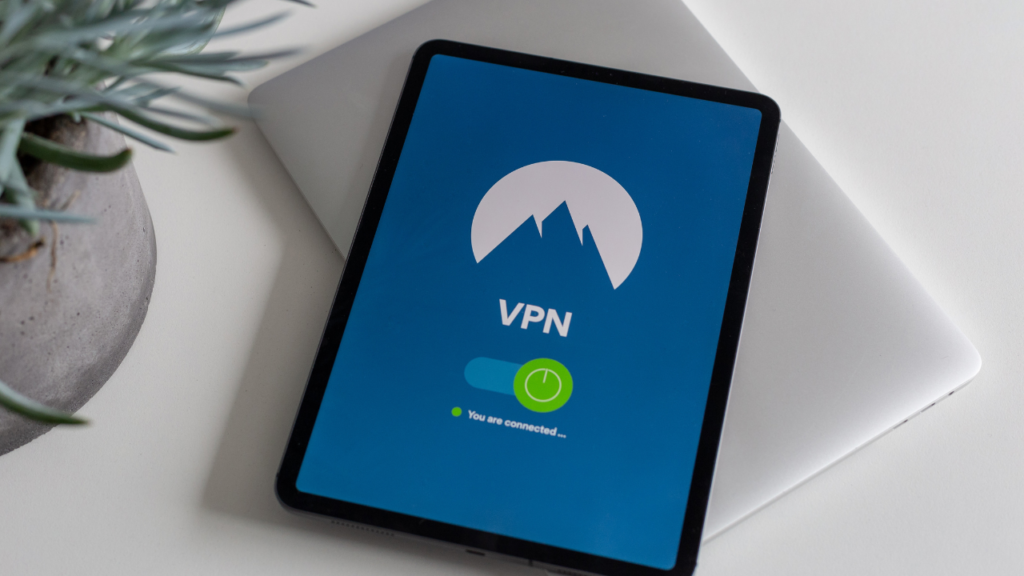VPN Servers and Server Locations – Why Are They a Factor When Choosing a VPN Provider?
DataProt is supported by its audience. When you buy through links on our site, we may earn a commission. This, however, does not influence the evaluations in our reviews. Learn More.
VPN servers are a key ingredient for establishing a VPN connection. These combine different technologies to forward all data packets from the user to the website and route all end-point responses back to the user.
Even though VPN providers often tout the number of VPN servers and available VPN server locations, they leave many users scratching their heads about the actual significance of these components.
That’s why we’ve decided to explain the role of servers in the VPN ecosystem, why they matter, and what different server locations mean for the quality of your connection.
How Does VPN Work?
In order to explain the importance of virtual private network servers, we need to start by looking at the overall structure of the VPN network. For starters, we’ll list all the elements that make up this network and enable a VPN connection to be established when using dedicated VPN software from your provider. There are other ways to establish a VPN connection, but all function roughly in the same manner.
User device: This refers to the device you’re using to connect to the Internet through a VPN connection. This can be any internet-ready device like a PC, laptop, tablet, router, or smartphone.
VPN protocol: A set of rules that dictate how data is routed from the user device to the VPN server. VPN protocols determine how quick and secure the VPN connection will be by defining things like packet size, authentication techniques, and encryption.
VPN tunnel: The encrypted connection created between you and the VPN server. While the VPN protocol determines the nature of the connection, the tunnel is the pathway your data packets take to reach the server, and from there, the Internet.
The process of establishing a VPN connection starts with the user firing up their VPN client software or connecting manually. After picking a VPN server to connect to and choosing a protocol like OpenVPN or WireGuard, a tunnel is formed between your device and the designated VPN server.

What Is a VPN Server?
Now that we’ve covered all other important elements, let’s get down to business – what are VPN servers?
VPN servers are a blend of software and hardware technologies configured to enable users to access the Internet through them. In a way, they act as proxies for your connection, which is why they’re often referred to as proxy servers.
Instead of connecting to a target website directly, your data takes a detour, getting tunneled to the VPN server first and reaching its end-point afterward.
The server is crucial for protecting your anonymity and safety, as VPN connections effectively spoof your actual location and IP. Any third parties monitoring the connection, including the website you’re trying to reach, will interpret the connection as coming from the location of the server and not your own. Your actual IP address is also concealed, making it appear as if you’re accessing a site or service from the IP address provided to you by the server.
Aside from masking your IP and location, the encrypted tunnel created between you and the server also hides all your online activity. Your data packets get decrypted once they reach the server. Once decrypted, that data is routed to the target website. When the website or service responds, the information is encrypted and sent back to you.
VPN Server Software
We’ve already touched on the fact that VPN servers are made up of software and hardware technologies.
Server software is installed on VPN servers and tasked with controlling the attached hardware and configuring the VPN network. This includes managing server security and levels of access, as well as the management of VPN protocols supported by the server.
Depending on the configuration of VPN server software, a single server can support multiple VPN protocols. Some allow users to choose from a variety of protocols depending on their needs and the device they’re using.
For example, the list of VPN servers at ExpressVPN shows that their servers support most of the available protocols apart from L2TP/IPSEC, which is only available on some of those servers. On the other hand, NordVPN only supports three VPN protocols, but they’re available on all their servers.
VPN Server Hardware
Most VPN servers also rely on dedicated hardware. That hardware comes with its own processor and can handle authentication and encryption through VPN software. An important distinction to make here is one between VPN servers run by providers and the ones set up by users themselves.
Users can choose to use VPN software (through dedicated VPN clients or by subscribing to a VPN service like IPVanish) or VPN hardware (mostly routers) in order to set up a VPN connection. While some users opt for VPN hardware, these are mostly reserved for larger corporations due to their heightened security and complicated setup processes.
When it comes to VPN providers, which is what we’re focusing on here, they use VPN server hardware to provide VPN services to their users. However, even hardware VPN servers come with the aforementioned server-side software that allows for configuration and management. This functions similarly to how corporations run their own VPN networks in order to extend VPN protection to all corporate devices.
Physical vs. Virtual VPN Server
Not all VPN providers use purely physical servers. Some utilize something called virtual VPN servers, which allows them to offer a significantly larger server network covering more locations without spending money on expensive infrastructure. That’s how one VPN provider, Private Internet Access, manages to incorporate 34,000 servers into its network.
Virtual (sometimes called “fake”) VPN servers are virtually simulated servers that run on strong data center hardware. These are the same as physical VPN servers and offer the same benefits when it comes to privacy, encryption, and so on.
Not only can VPN providers inflate the number of servers in their network by running virtual ones, but they can also simulate servers in other locations. For example, if their data center is located in Germany, they can still emulate a Hungarian VPN server from there.
Where these types of VPN servers do differ, however, is performance. In order to increase the number of servers and cut down costs, providers often host multiple virtual VPN servers on a single physical machine. In some cases, where there aren’t too many users connecting to a virtual VPN server on a specific machine, you might actually get better speed than when connecting to physical ones. However, if there’s a lot of traffic, connection performance suffers significantly.

Why Are VPN Server Locations Important?
If you’re searching for the right VPN provider, it’s important to keep an eye out on both the number of servers in a particular network and the server locations.
The number of server locations directly impacts the quality of the VPN connections, as well as the functionality provided by the VPN software. For example, if you’re trying to access content that’s restricted in your country, like the US Netflix library, you need to use a VPN with US servers.
Alternatively, if you’re just looking to mask your online activity without a specific country in mind, you’ll be looking for the fastest VPN server locations to connect to. The closer the server is to your actual location, the better the speed. Hence, you should look for providers that have servers in your country. Servers in any nearby country also provide decent speeds, but as you move further away, connection performance will suffer.
Also, keep in mind that there is a difference between the terms “location” and “countries”. With most providers, “locations” refer to specific cities within a country. For example, a VPN provider can have hundreds of VPN locations spread across 60 different countries.
What About the Number of VPN Servers Available?
A low number of servers spread over many locations can cause problems with connectivity.
Servers in Europe and the US tend to be the most popular ones. If there are only a few servers in these highly sought-after locations, you’re likely to experience slowdowns with many users connecting to the same servers. On the other hand, if there are thousands of servers, you’re far less likely to face connection problems.
Naturally, the ideal VPN provider is one with a lot of servers in many different locations. However, you don’t necessarily have to go with NordVPN or ExpressVPN, which have several thousand servers. There are more affordable options for those who are looking for coverage in specific locations.
P2P and Streaming VPN Servers
Another thing to look out for is whether the VPN provider you’re eyeing has P2P servers. These servers are used for torrenting, and not all servers support P2P connections. Some providers have no VPN P2P servers. Others offer a few, while a small group of providers allows torrenting on all of their servers.
The reason why a lot of users look for P2P server availability is because torrenting is illegal in some countries, leading to fines or even jail time. In the US, for example, ISPs keep an eye out for any torrenting activity by their users. While downloading files through P2P networks in itself isn’t illegal, downloading any copyrighted materials is.
On the other hand, streaming with VPNs does not require any specialized servers. However, in order to unblock geo-restricted content, the VPN provider needs to have servers located in the appropriate country. Also, if you want to access streaming services while traveling, you might need to turn on the VPN to use the service.
However, VPN solutions need to offer fast-enough connections for streaming to be an enjoyable experience. VPN connections tend to slow down your connection due to encryption and tunneling. If the number of server and server locations is insufficient, then connection speeds will drop even more, making streaming a less enjoyable experience, especially if you’re looking to stream in 4K.
Top Three VPNs With the Highest Number of Server Locations
If you’re looking for a VPN provider that offers both a ton of flexibility as well as consistently good connection speeds, you should look for a high number of server locations. To help you out, we’ve identified the three VPNs with the biggest server networks.
CyberGhost
With more than 7,200 servers in 90 countries, CyberGhost has one of the market’s largest selections of servers.
CyberGhost offers much more than a large server network. Connection speeds are great, and this VPN successfully unblocks most streaming services, including the US Netflix library.
Privacy is another CyberGhost strong point thanks to its no-logs policy and NoSpy servers. If staying anonymous on the internet is your primary concern, you can’t go wrong with CyberGhost.
NordVPN
Widely regarded as the most popular virtual private network, NordVPN currently has over 5,000 servers in 60 countries, meaning you’ll always find an appropriate server to connect to.
On top of that, NordVPN unblocks all streaming services, supports split-tunneling, and comes with Onion Router support.
ExpressVPN
Another major contender for the VPN throne, ExpressVPN, is all about speed. This makes it ideal for torrenting, streaming, and other speed and bandwidth-hungry activities.
ExpressVPN’s server network has 3,000+ servers in 160 locations spread out across 94 countries. A lot of them support P2P connections, and there’s a solid selection of VPN protocols on offer, including their proprietary Lightway protocol (based on WireGuard).


